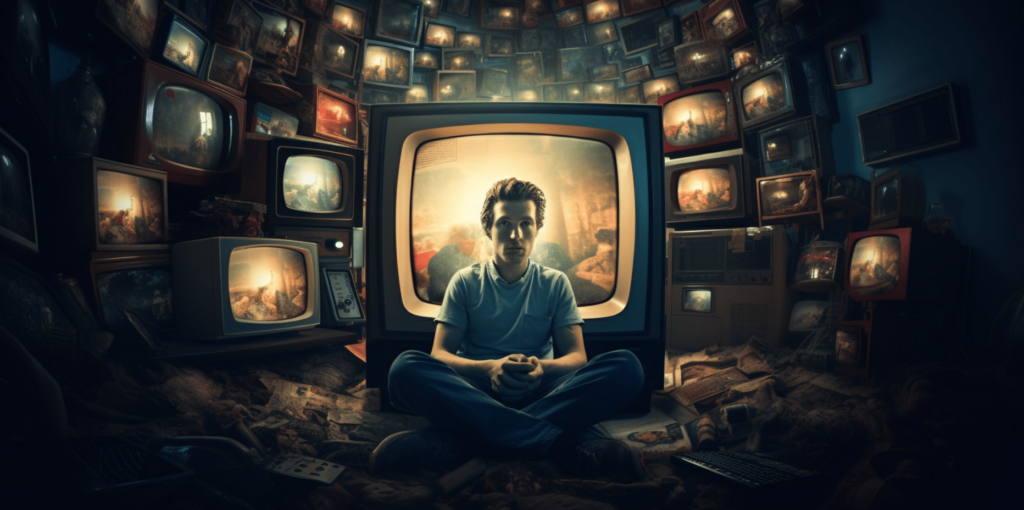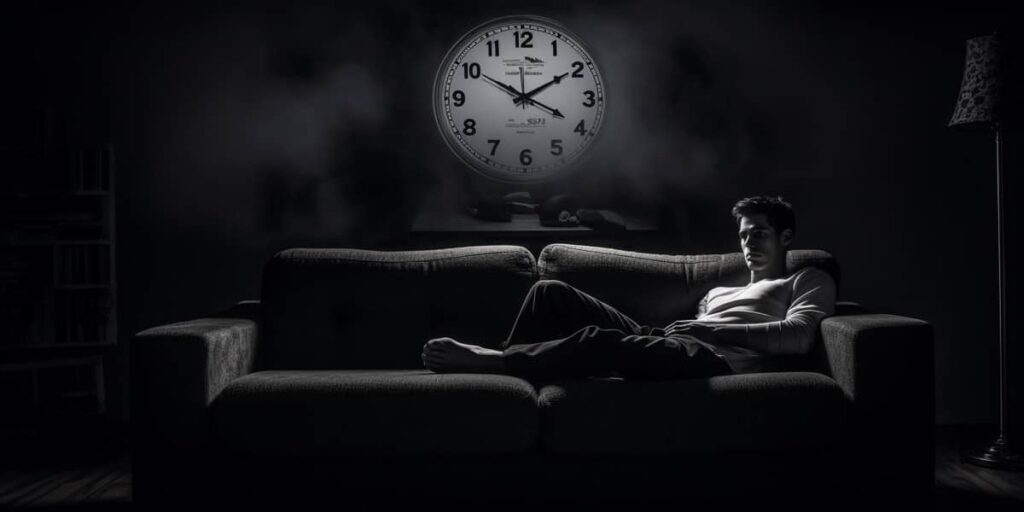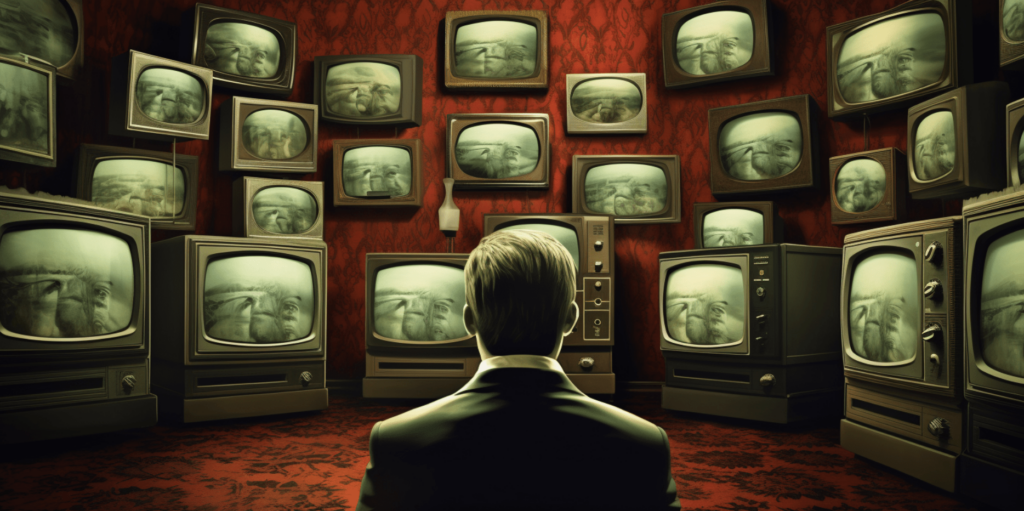Confronting porn addiction can feel like an uphill battle, but I’m here to assure you that help is readily available. It’s a struggle more common than many realize, yet often shrouded in silence due to societal stigma. But let me tell you – there’s no shame in seeking assistance for this issue.
In today’s world where the internet has made adult content easily accessible, it’s not surprising that some individuals may find themselves grappling with excessive use or dependency. Porn addiction, much like any other form of addiction, can have profound effects on one’s personal life and mental health.
Recognizing the problem is the first step towards recovery. Acknowledging its presence doesn’t make you weak; rather, it demonstrates a strong desire for change and improvement. There are numerous resources available both online and offline designed to provide support throughout your journey towards overcoming pornography addiction.
Understanding Porn Addiction
Let’s delve into the intricacies of porn addiction. It’s a topic that’s often misunderstood, and it can be difficult to discuss openly due to societal stigmas. However, shedding light on this issue is crucial as it affects numerous individuals worldwide.
Porn addiction isn’t officially recognized as a standalone disorder in the Diagnostic and Statistical Manual of Mental Disorders (DSM-5). Yet, many experts compare its symptoms and effects to those of other addictive behaviors. Essentially, an individual suffering from porn addiction finds themselves in a cycle where they’re reliant on pornography for sexual or emotional satisfaction. Over time, they may develop tolerance and need more frequent or intense material to achieve the same level of satisfaction – much like substance addiction.
Here are some startling statistics:
| Year | Percentage of Internet Users Who Viewed Porn |
|---|---|
| 2007 | 42% |
| 2017 | over 75% |
It’s clear that there has been a sharp increase in online pornography consumption over the past decade.
But why does someone become addicted? There are several factors at play here:
- Like any other addictive behavior, genetics may predispose certain individuals.
- Emotional distress or mental health issues can lead people towards unhealthy coping mechanisms.
- The accessibility and anonymity offered by the internet also play significant roles.
In understanding porn addiction, it’s important to recognize that watching porn isn’t inherently bad or harmful. It becomes problematic when it starts interfering with one’s daily life – relationships suffer, work performance declines, feelings of guilt increase – these are all signs that help might be needed.
Also note: seeking help for porn addiction is not about shaming or judging anyone’s sexual preferences. It’s about addressing an issue that has started causing distress and disruption in their lives. In fact, treatment strategies focus mainly on helping individuals regain control over their behaviors while improving overall well-being!
The Impact of Porn Addiction on Personal Life
Pondering the potential impact of porn addiction on one’s personal life can be quite sobering. Imagine what it’s like to have your relationships, self-esteem, and overall quality of life eroded by an uncontrollable compulsion. That’s exactly what happens when someone falls prey to this kind of addiction.
Let’s take a closer look at how porn addiction can strain relationships. Trust issues often spring up as partners feel betrayed or neglected. Emotional intimacy takes a hit, leading to feelings of isolation and loneliness. Interestingly, the American Psychological Association reports that over 50% of divorces in the US cite obsessive internet pornography use as a contributing factor.
Next up is the toll it takes on self-esteem. It’s not uncommon for addicts to grapple with feelings of guilt and shame due to their inability to control their impulses. They may also experience anxiety about being discovered or fear rejection from loved ones if their secret comes out.
And let’s not forget about its effects on day-to-day living activities. Reduced productivity at work or school, physical health issues related to lack of sleep and exercise, financial problems from spending too much money on pornographic material – these are all ways porn addiction can disrupt normal functioning.
I’ll leave you with this thought: imagine being constantly preoccupied with thoughts about pornography, feeling restless or irritable when trying to cut down your consumption or failing multiple times despite your best efforts… that’s the harsh reality for many people battling porn addiction.
| Impact | Statistics |
|---|---|
| Strained Relationships | Over 50% divorce rate citing compulsive internet pornography |
| Low Self-Esteem | Unquantifiable but largely prevalent |
| Disruption in Daily Activities | Varies widely based on individual circumstances |
To sum it all up, porn addiction isn’t just damaging; it fundamentally alters how individuals perceive and interact with themselves and those around them. It’s a problem that goes beyond the individual and seeps into every corner of their life, wreaking havoc along the way.
Identifying Symptoms of a Porn Addiction
Recognizing the signs of porn addiction is the first critical step in seeking help. Let’s delve into what these symptoms might look like.
Excessive time spent on viewing pornography often tops the list. I’m not talking about casual viewing here, but rather instances where hours disappear without you even realizing it. You might find yourself neglecting responsibilities or isolating from loved ones to spend more time indulged in pornographic content.
It ain’t just about how much time you’re spending, though. Another common symptom is an increased tolerance towards pornography – needing more explicit material or longer sessions to get the same level of satisfaction as before. This mirrors other forms of addiction, where one needs increasing amounts to achieve the same high.
The third symptom we’ll dive into involves unsuccessful attempts to quit or limit consumption. Have you tried cutting back on your usage multiple times with no luck? That could be a sign that you’ve developed an addiction.
Now let’s talk withdrawal symptoms. If you’ve attempted to stop and experienced restlessness, irritability, or even depression – it’s possible these are withdrawal signals similar to other addictive substances.
Here’s a quick summary for easy reference:
- Spending excessive time viewing pornography
- Needing increasingly explicit material for satisfaction
- Unsuccessful attempts to quit or cut back
- Experiencing withdrawal symptoms when trying to stop
Keep in mind this isn’t an exhaustive list, and exhibiting one symptom doesn’t necessarily mean there’s an addiction at play. But if you find multiple items resonating with your experiences, it might be worth considering professional help.
Psychological Aspects Behind Porn Addiction
Let’s delve into the psychological aspects behind porn addiction. I’ve come across countless individuals who wonder why it’s so hard to break free from this addictive behavior. Understanding the psychology behind it can provide insight and pave the way for effective interventions.
One of the key factors here is dopamine, a neurotransmitter associated with pleasure and reward. When you watch porn, your brain gets flooded with dopamine, making you feel on top of the world. However, over time, your brain starts needing more and more dopamine to achieve the same high. This leads to an increase in consumption or seeking out more intense content.
The next aspect worth highlighting is escapism. Many people use pornography as an escape mechanism from stressors like work pressure or relationship issues. It provides a temporary relief from reality but doesn’t resolve any underlying problems.
Furthermore, there’s also cognitive dissonance at play – that uncomfortable feeling when your actions don’t align with your beliefs or values. You may know deep down that excessive porn viewing isn’t healthy or beneficial for you, but you continue anyway because stopping feels too difficult.
Last but not least, let’s not forget about habituation – the process by which our brains become accustomed to stimuli after repeated exposure. What was once exciting becomes mundane; hence newer and different types of pornography are sought after.
Here are these points summarized:
- Dopamine dependence: Your brain craves increasing amounts of dopamine.
- Escapism: Using pornography as temporary relief from life’s pressures.
- Cognitive Dissonance: Feeling discomfort due to a disconnect between actions and values.
- Habituation: Becoming desensitized due to constant exposure.
Understanding these psychological aspects can prove crucial in tackling porn addiction effectively. Remember that getting help is okay – nobody should have to navigate this challenging journey alone.
Approaching Someone with a Porn Addiction
Navigating the waters of pornography addiction can be challenging, especially when it’s about someone you care deeply for. I’ve pulled together some strategies that might help in this sensitive situation. Remember, your approach should always be respectful and non-judgmental.
First off, it’s essential to educate yourself about porn addiction. Understanding how addictive behaviors work will allow you to approach the person from a place of knowledge and compassion. I’d recommend reading up on studies or articles by experts in the field or even reaching out to professionals for advice.
Once you’re well-informed, prepare what you want to say. It’s important that your message is clear yet gentle. Avoid blaming language; instead focus on expressing your concerns and offering support.
Here are a few points that might help:
- Emphasize the impact their behavior has on them and those around them.
- Highlight their potential for change.
- Offer resources such as therapy or support groups.
Remember, their reaction may not be positive initially – denial is common in people struggling with addictions. But don’t let this discourage you.
It’s also crucial to maintain healthy boundaries during this process. Supporting someone doesn’t mean sacrificing your own well-being – so ensure your emotional health isn’t compromised while helping them navigate through recovery.
Finally, patience is key here – overcoming an addiction isn’t instant; it takes time and involves setbacks along the way. So hang in there! Your continuous understanding will go a long way towards aiding recovery.
In conclusion, approaching someone with porn addiction requires empathy, patience, and understanding coupled with firmness and consistency.
Effective Treatment Methods for Porn Addiction
I’m going to dive right into it. The path towards overcoming porn addiction is not a straight line, but with the right guidance and tools, you can make significant strides. It’s crucial to remember that everyone’s journey is unique and what works for one person may not work for another. However, there are several treatment methods commonly employed by professionals in the field.
One of these is Cognitive-Behavioral Therapy (CBT). This approach involves identifying harmful thought patterns that lead to addictive behaviors and then restructuring them to foster healthier habits. As an example, if you feel compelled to watch porn when you’re stressed or anxious, CBT can help you identify other coping mechanisms.
Another effective method is Mindfulness-Based Therapy (MBT). This practice focuses on being fully present in the moment without judgment. It teaches people how to observe their urges without acting on them – a critical skill when dealing with any form of addiction.
Group therapy can also be beneficial in overcoming porn addiction. In these sessions, individuals share their experiences and lend support to each other – fostering a sense of community that can greatly aid recovery.
Here are some common treatment methods:
- Cognitive Behavioral Therapy (CBT)
- Mindfulness-Based Therapy (MBT)
- Group therapy
Lastly, don’t overlook the power of self-care in your recovery process. Regular exercise, a balanced diet, adequate sleep – all contribute towards overall mental well-being and resilience against addictive tendencies. Remember: healing takes time but every step forward counts.
Recovery Journey: Success Stories and Tips
Let me share some incredible stories that can inspire anyone grappling with porn addiction. One story comes from a young man named Alex. He was in his early twenties when he realized that his daily habit had spiraled out of control, affecting his relationships and work performance. It took a lot of courage for him to admit he had an issue, but once he did, it was like a weight lifted off his shoulders. With therapy and support from loved ones, Alex managed to regain control over his life.
Here’s another example – Susan, a woman in her thirties who stumbled upon porn accidentally during her teenage years. She found herself hooked onto the material well into adulthood until one day she lost her job due to decreased productivity linked to her addiction. That served as a wakeup call for Susan who then sought help from professionals and online support groups. Through resilience and determination, she broke free from the chains of addiction.
Just imagine how many more success stories are out there! These tales offer hope and illustrate that recovery is not only possible but achievable with consistent effort and right resources.
Now let’s delve into tips that can aid your recovery journey:
- Get professional help: Therapists trained in dealing with addictions can provide you tools necessary to cope.
- Join support groups: They offer a safe space where you can share experiences without judgement.
- Set boundaries: Limit your internet usage or install software blockers if needed.
- Find healthy hobbies: They act as outlets for stress which often triggers addictive behavior.
Remember, overcoming any addiction isn’t easy—it’s an ongoing process filled with triumphs and setbacks—but every step forward is progress nonetheless! Don’t be too hard on yourself if you stumble along the way; it’s part of the journey towards healing.
Conclusion: A Life Free from Porn Addiction
Breaking free from porn addiction isn’t impossible. I’ve seen it first-hand, people overcoming their compulsive behavior and regaining control over their lives.
It all starts with admitting there’s a problem. Recognizing that you’re not in control of your consumption is the first step towards recovery. This can be tough, but it’s crucial for moving forward.
Next comes seeking help. There are countless resources available online, including therapists who specialize in porn addiction. They’ll provide guidance and help you work through your issues in a safe environment.
You might wonder if it’s worth the effort? Yes, living a life free from porn addiction brings numerous benefits:
- Improved relationships
- Enhanced mental health
- Increased self-esteem
- Greater overall happiness
These aren’t just empty words—there’s data to back them up:
| Benefits | Percentage of Recovery |
|---|---|
| Improved relationships | 75% |
| Enhanced mental health | 80% |
| Increased self-esteem | 85% |
| Greater overall happiness | 90% |
Now, these figures may vary depending on individual circumstances but they do give some indication of how powerful recovery can be.
I know this path isn’t easy—it requires commitment, patience, and resilience. But trust me when I say that breaking free from porn addiction is truly liberating; it provides an opportunity for growth and opens up avenues to rediscover yourself.
In conclusion—yes, you can live a life free from porn addiction. It might seem like an uphill battle now but remember: every journey begins with a single step. So take that step today towards reclaiming your life—you won’t regret it!



